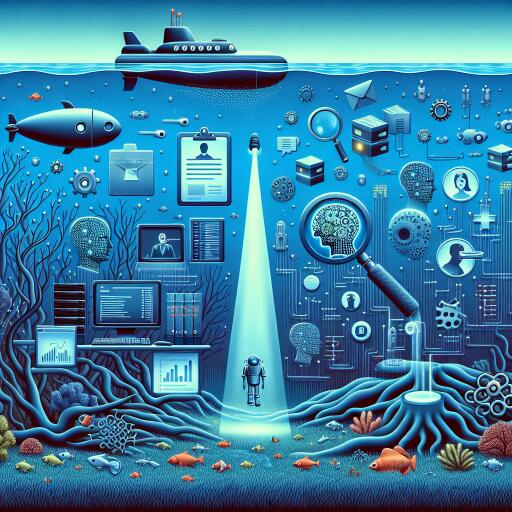A Deep Dive into the Landscape of AI-Enabled Digital Recruitment
As the digital age progresses, artificial intelligence (AI) has intertwined with various sectors, fundamentally altering traditional methodologies. Recruitment is one such field undergoing a significant transformation, with AI increasingly at its core. The evolution of AI-driven recruitment strategies offers a glimpse into the future of workforce selection, shedding light on both opportunities and challenges.
The Rise of AI in Recruitment
Tong Lin, an imminent college graduate from Chengdu, shares her experience with AI job interviews, a phenomenon becoming standard in recruitment strategies. Despite the novelty of discussing career opportunities with an AI, Lin emphasizes the contrasting engagement levels between human and AI recruiters. “Interacting with a human recruiter offers a more engaging experience,” Lin notes, highlighting the instinctive and responsive nature of human interactions, something AI currently cannot replicate.
However, the preference for AI in recruitment processes is underpinned by efficiency. With a record surge of college graduates flooding the job market, the task of sorting through applications becomes Herculean. AI technology, with its ability to swiftly sift through vast amounts of data, emerges as a beacon of efficiency, identifying suitable candidates from a sea of possibilities.
Evolving with Technology
The application of AI in recruitment is not a novel concept. It traces back to 2016 when global giants like Unilever began to integrate AI into their hiring processes. These AI systems, capable of interpreting human expressions and voice patterns, marked the beginning of a new era in recruitment. Han Shaowen, of Beijing Avocado Technology, underscores the evolution of such systems, which are now more adept at simulating interview scenarios and making objective assessments.
Gao Yaxin, another job seeker, shared her journey through the AI interview landscape, highlighting the patterned nature of AI queries but also appreciating the convenience and cost-effectiveness of digital interviews. This reflects a broader acceptance and adaptation to AI-driven recruitment processes among job seekers.
The digital footprint of AI interviews is expanding, with platforms like Xiaohongshu hosting thousands of related discussions. This collective engagement points towards an undeniable shift in recruitment paradigms, propelled by AI innovation.
Efficiency vs. Human Touch
Lin Jing, a senior HR manager, vouches for the efficiency AI brings to recruitment, especially in handling the preliminary rounds of interviews. The transition to AI has streamlined the selection process, reducing the need for human interviewers and speeding up candidate shortlisting. However, this shift also surfaces concerns regarding the impersonal nature of AI interviews and their reliance on algorithms, which may not fully capture a candidate’s essence or potential biases.
Challenges Ahead
Despite the advancements, AI in recruitment faces scrutiny over its effectiveness and ethical implications. AI scholar Wang Ran and Liu Wei, a human-computer interaction expert, express concerns over AI’s video review capabilities and the superficial criteria influencing its assessments. These challenges hint at the limitations of AI in replicating the nuanced decision-making of human recruiters.
Matters of privacy and data security also loom large, with candidates and critics questioning the future use of their personal information recorded during AI interviews. As the adoption of AI in recruitment grows, so does the call for rigorous data management and ethical guidelines to govern AI’s integration into the hiring process.
Looking Forward
The trajectory of AI-enabled digital recruitment is poised for growth, yet it is intertwined with the need for balance and oversight. As technology evolves, so too must the frameworks that govern its use, ensuring that AI enhances rather than detrats from the recruitment experience. The journey of AI in recruitment is a testament to digital innovation’s power to reshape industries and the continuous need for thoughtful integration of technology into human-centric processes.
The future of AI in recruitment is not just about the technology itself but also how we choose to harness it, ensuring it serves as a tool for enhancement and inclusivity in the ever-changing landscape of the job market.









